Due to the technological revolution, wireless chargers are also invented to provide power to our devices without any hassle of cords and cables. Now, there are a bunch of options, so it can be overwhelming to use the right wireless charger for your device. Wireless chargers are utilized effectively in the work environment, at smart homes, or in the business. It is very easy to use a wireless charger, but buying the correct one could be tough. In this article, we will provide you with all the information that is needed to make a decision when purchasing a wireless charger.
What Is Wireless Charging?
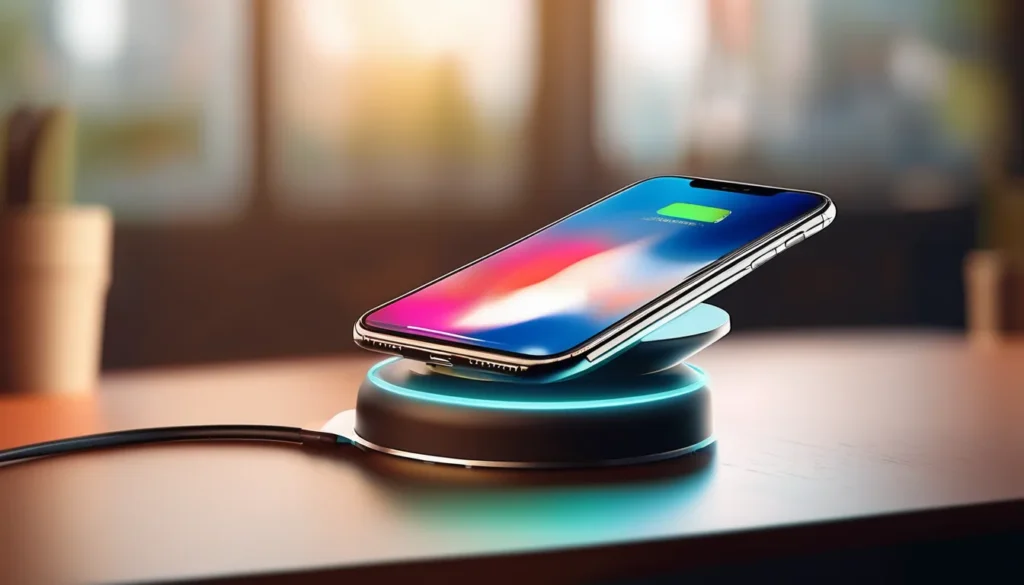
Wireless charging is also known as inductive charging. Inductive charging is a technology that allows you to charge your device without the use of cables by using electromagnetic fields generated by it. Wireless charging works by transmitting power from a charging pad to your device through induction coils within the charger and the device. The charger generates an alternating current (AC), which creates an electromagnetic field, causing the electrons in the receiving coil on your device to move and create an electrical current. In this way, our device is being charged with power.
Wireless Charging Overview
- Buying a charger should be a rewarding experience.
- Wireless charging is widely available, requiring a phone to be dropped on a pad.
- Buying a charger can be intimidating due to complexities like wattage, coil count, charging speed, and form factor.
- Online shopping can be more efficient than visiting a store.
- For those looking to cut the cord, consider purchasing from Amazon.
Choosing a wireless charger that suits your needs
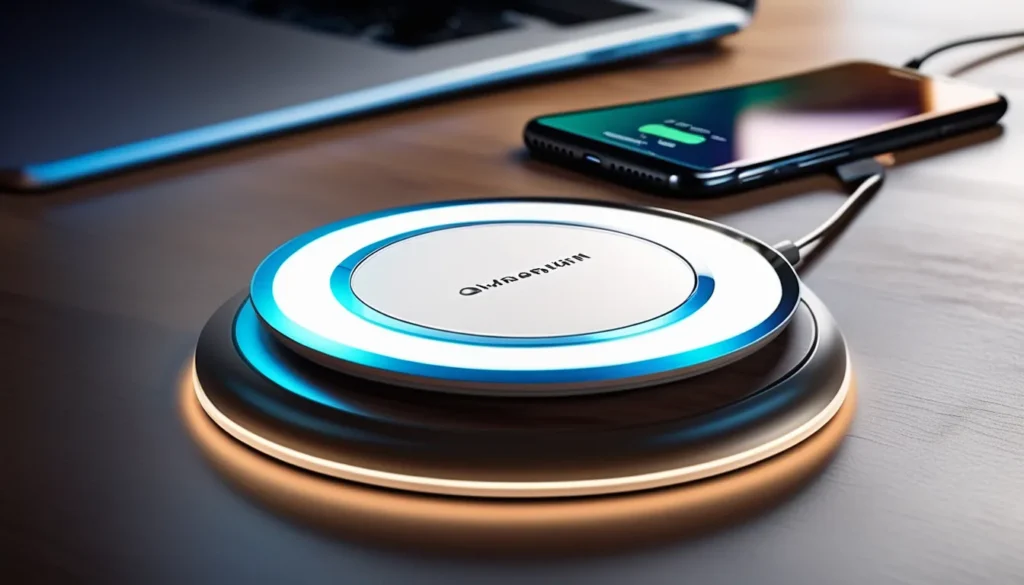
Compatibility
First off cheap it’s spelled Qi, and it’s the wireless charging standard your phone uses every charger out on the plan is going to use it but just double-check to make sure it’s there you’ll save yourself some time later. You should make sure that it is compatible with your device.
Charging Speed
The most important spec for buying a wireless charger though is how much power can it have. Now base charging for cheese starts at 5 watts which is fine. A lot of devices support fast charging, so Apple phones like the iPhone 10 are 10s can support up to seven and a half watts which will charge faster assuming your pad can support it. Some Android phones even go up to 10 watts, pixel phones only just fast charge with the pixel stand.
This is a limit from Google sorry pixel owners, but generally speaking, you’re going to want to make sure that to get the fastest possible experience, you want at least 10 watts from any charger you buy.
Shape and Size
Wireless chargers come in all sorts of weird shapes and sizes materials and designs, so a lot of it also just comes down to personal preference. Do you like leather? Get a fancy leather charger. Do you like fabric? Get a fabric one. You want one that just charges your phone? Get a cheap plastic one. Now obviously, there’s going to be some variation between chargers. Some will still charge slightly faster than others, but for the most part, if you follow this, you’ll end up with a great wireless charger.
Design
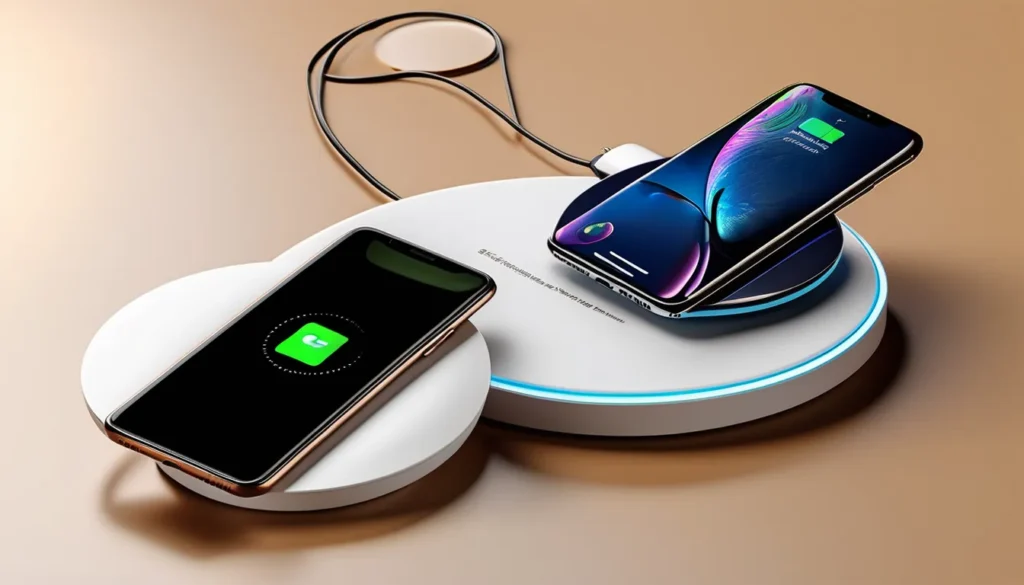
Wireless chargers come in various styles, such as pads or stand chargers. Think about where you’ll be operating the wireless charger, or else you want to charge more than one device.
The first is for chargers that are still only meant to charge one device, but still have multiple coils. The advantage here is that having multiple coils will make it easier to find that sweet spot where it lines up and charges, on the other hand there are also devices like Samsung’s dual charger that have multiple separate coils. So you can charge multiple devices at once, so if you have two phones or a phone to Smartwatch you want to charge at the same time, that might be a good option for you.
Portability
If you’re planning on charging your phone by your desk a lot, you’ll probably want a smart home charger where you’ll easily be able to see the screen of your phone without craning over. If you’re hoping for one by your bed to charge overnight, you’ll probably want a flat charger so that your phone isn’t standing up and blinding you every time someone texts you in the morning. If you’re indecisive or just want flexibility, some pads convert from flat to standing, so you can get the best of both in your smart home setup.
Difference Table
| Aspect | Description | Considerations |
|---|---|---|
| Definition | Wireless charging uses electromagnetic fields to charge devices without cables. | Check for Qi compatibility. |
| Charging Speed | Common wattage: 5W (standard), 7.5W (Apple), 10W (Android). | Choose at least 10W for faster charging. |
| Shape and Size | Available in various designs (pads, stands). | Pick a design that fits your style. |
| Portability | Some are flat, others stand up; consider where you’ll use them. | Match the design to your usage context. |
| Brand Reliability | Recommended brands include Apple, Samsung, and RAVPower. | Avoid unknown brands for reliability. |
| Compatibility | Ensure your device supports wireless charging. | Most modern smartphones are compatible. |
| Wall Adapter | Most use standard adapters (micro USB, USB-C); some may not include one. | Verify adapter compatibility for fast charging. |
| Multi-Device Charging | Some chargers support charging multiple devices at once. | Consider if you need multi-device support. |
FAQs
How to know a good wireless charger?
Always choose a reliable brand like Apple’s MagSafe, Samsung and RAVPower. Which will provide you better charging experience and will be reliable also. Do not buy wireless chargers from unknown brands.
Should I buy a 10W or 15W wireless charger?
You should always prefer a 15W wireless charger instead of a 10W wireless charger because a 15W wireless charger will help you charge your device faster.
How do I know if my wireless charger is compatible?
You need to check your phone first if it supports wireless charging and look at the specifications in the manufacturer’s manual or your phone’s manual. Latest mobile phones like Apple, Samsung, and Google support wireless charging.
How do I select a fast wireless charger?
The more watts a wireless charger holds, the faster and more efficiently it can charge your device. Nowadays, smartphones that support the quickest wireless charging can handle around 10 watts, so if you want the fastest possible charge, you’ll need at least a 10-watt charger.
Conclusion
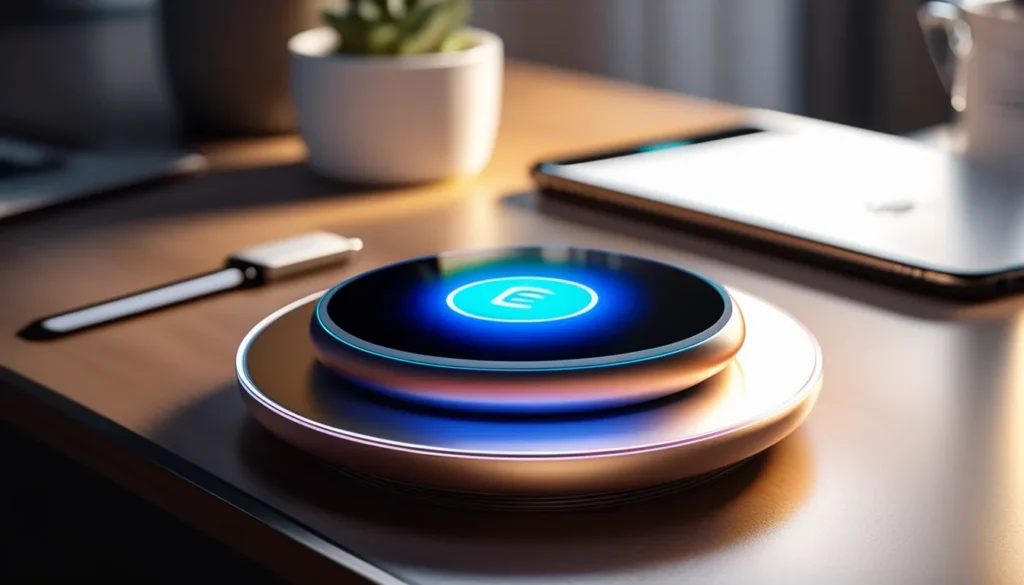
Most wireless chargers use a standard adapter to plug into walls which is great most of them use micro USB or some newer ones even USB see which is useful because those are standard cables which mean that you can easily swap them out if you require a longer one, or you break yours, but some Chargers use weird proprietary ones or even have cables embedded directly into a device, which you probably will want to avoid unless you really can’t.
In that same vein, you’re also going to want to look at what kind of wall brick comes with your charger, if it comes with one at all. A lot of companies do not include a brick in the box, which can be frustrating because if you only have a 5-watt brick for your 10-watt wireless charger. It won’t matter that your charger can fast charge your phone because it won’t have the power supply to do that. If you’re hoping to save money by buying a cheaper charger that doesn’t come with a brick, just remember that unless you already have a high watt charger with you.

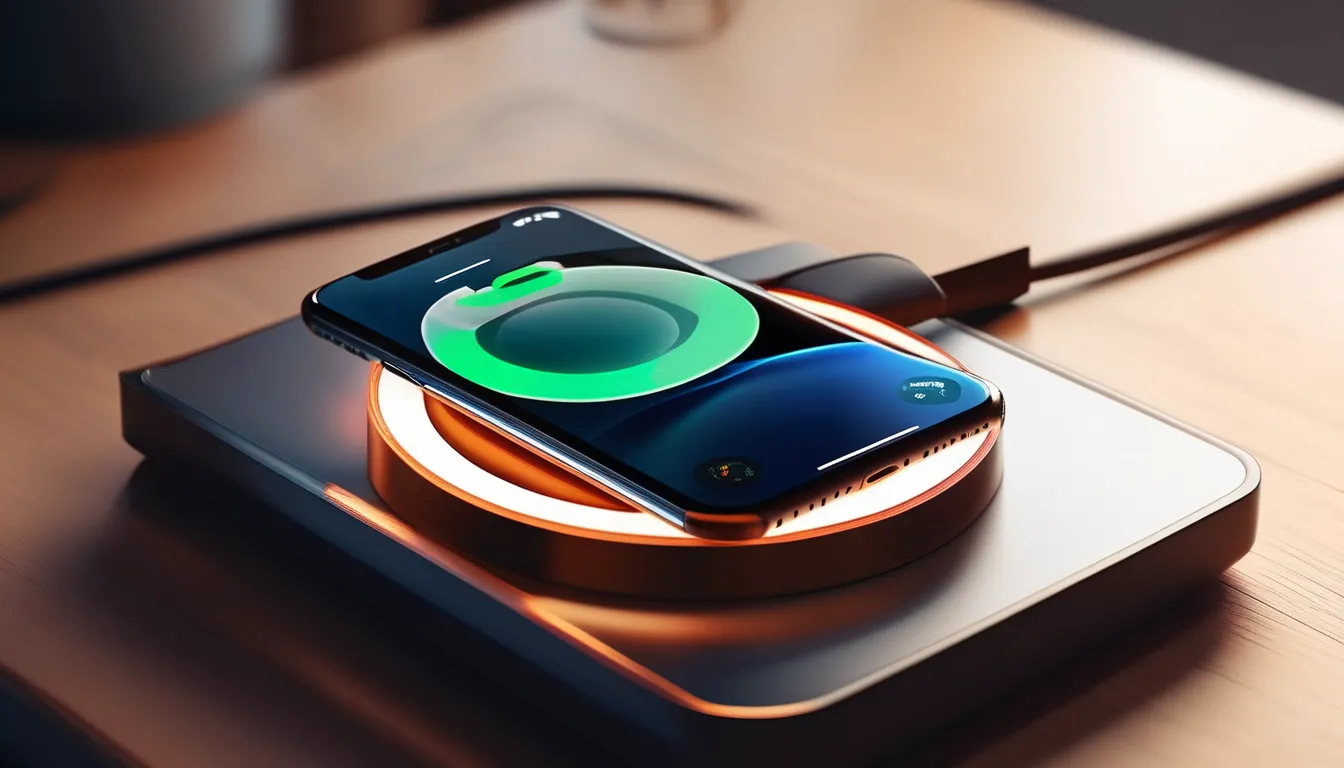
[…] induction, or induction of electricity. Electrical energy is transmitted between the wireless charger and the kindle e-book reader via a magnetic field. The wireless charger transmit magnetic field […]
[…] Portable chargers and electricity banks have grown to be important in our speedy-paced, tech-pushed lives. These reachable devices make certain that your cellphone, tablet, or different devices gained’t run out of juice whilst you want them most. […]